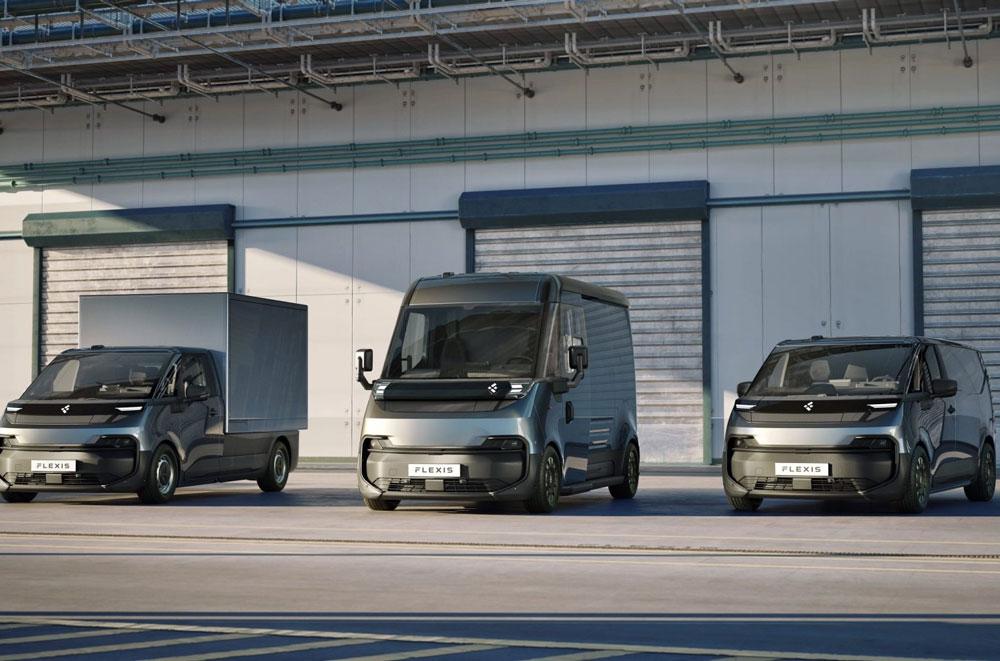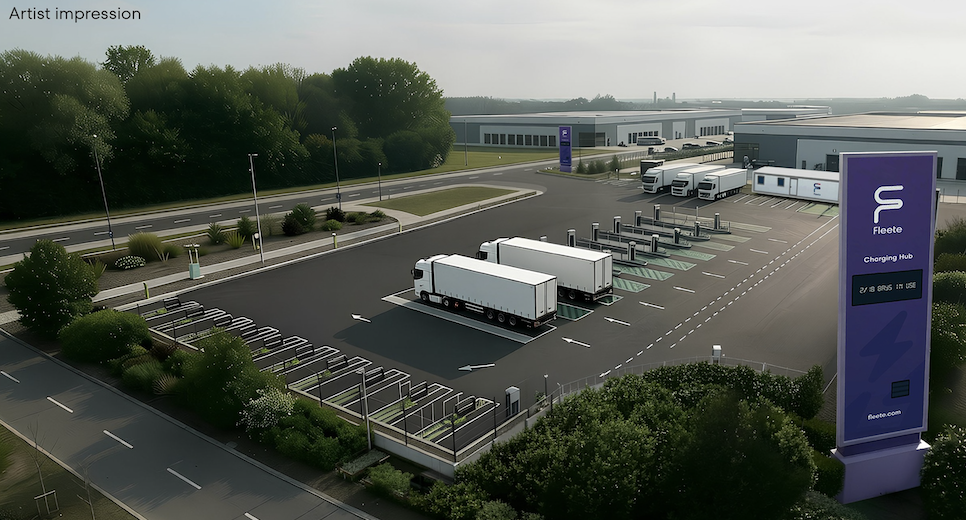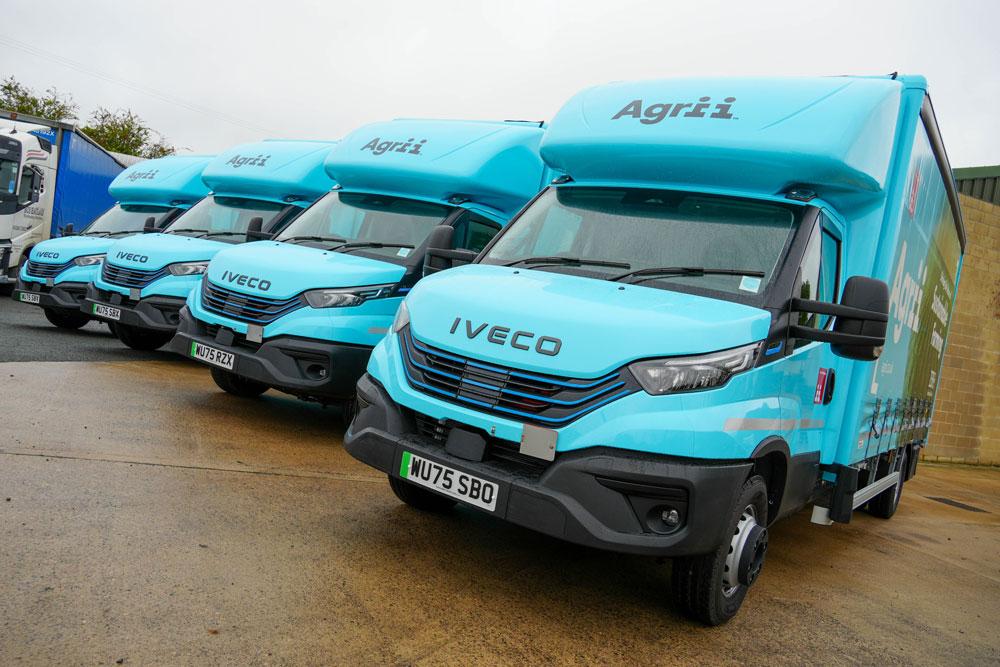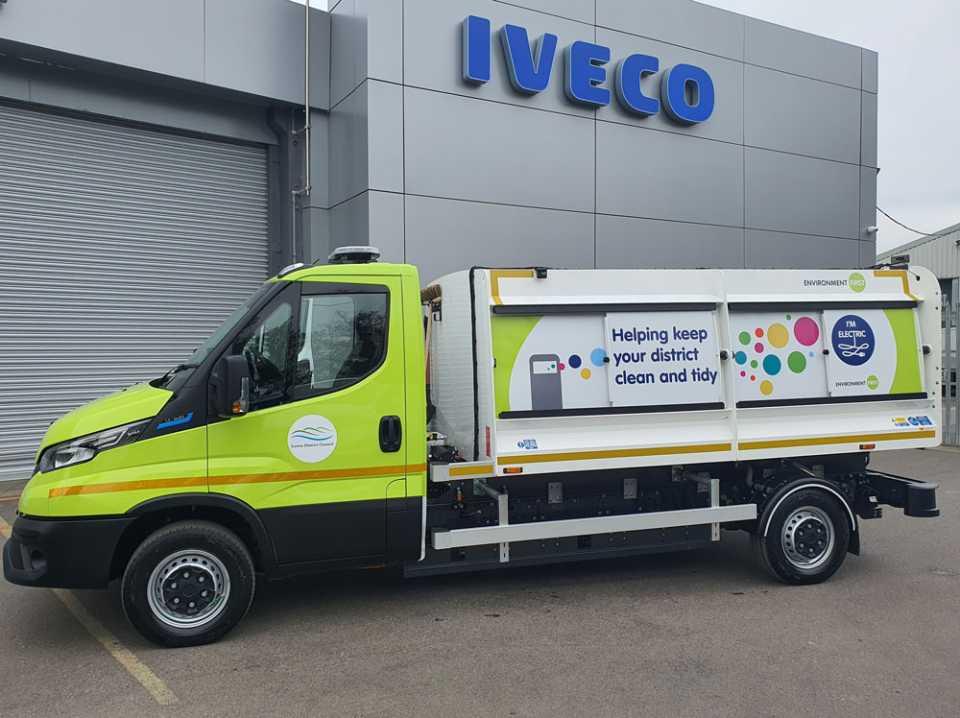Watt Electric Vehicle Company (WEVC) has partnered with Hydro to explore the use of certified recycled and low-carbon aluminium to produce bespoke patented extrusions for its eCV1 electric light commercial vehicle.
Hydro’s low-carbon aluminium carries a CO2 footprint of just 4.0 kg CO2 per tonne (versus a world average of 16.7kg), thanks in part to the renewable energy used in the production process. The two companies will also evaluate using recycled aluminium with a lower carbon footprint in UK-manufactured automotive structures for the first time.
Overall, WEVC aims to cut embedded carbon in production of its eCV1 electric light commercial vehicle by significantly more than 50% compared to other electric LCVs. Leveraging the combination of WEVC’s breakthrough extended design life, patented bonded aluminium Flex-Tech® architecture and Hydro’s new low CO2 and recycled aluminium products, WEVC will be the first commercial vehicle manufacturer to significantly reduce CO2 emissions in manufacture, a cornerstone in delivering its sustainability objectives.
Neil Yates, CEO of WEVC explained: “We started WEVC from a clean sheet of paper so are not restricted by legacy platforms or components, giving us freedom in both design and manufacture. Part of our design approach is the patented FlexTech® technology used for our aluminium chassis, which gives incredible levels of flexibility and customisation opportunities, but crucially is also very light.
“In Hydro we have the perfect partner who can deliver very high-quality ‘greener’ aluminium products, which bring a significant reduction in embedded carbon. Forming a development partnership with Hydro allows us to together make sure the new alloys have all the right strength and durability attributes and the lowest possible manufacturing emissions while considering the entire supply chain.
“At WEVC, we also recognise that repair, re-use and recycle philosophies demand changes in both product design, manufacturing process and business practice and this partnership with Hydro will also explore wider opportunities such as more sustainable closed loop recycling during manufacture through to end of vehicle life recycling options. Together we can deliver upon multiple sustainability opportunities that come from fully embracing the circular economy.”
Paul Warton, EVP Hydro Extrusions added: “In WEVC we have a partner who has sustainability embedded into its design philosophy. By selecting recycled, low-carbon aluminium for the eCV1, WEVC will reduce vehicle mass, while increasing the durability and payload in this vehicle. Doing this and cutting the embedded carbon footprint of an electric light commercial vehicle in half is a huge step forward for more responsible manufacturing.
“We are discussing with WEVC how we can work together to build a closed loop recycling process for the eCV1 at the eventual end of the vehicle's life. Having the vehicle manufacturer directly returning pure Hydro aluminium products, which are a known quantity in terms of quality and type of alloy, makes reprocessing easier and reduces the carbon footprint of the resulting aluminium products drastically.”
The UK-designed, engineered and built WEVC eCV1 has attracted strong interest from blue-chip companies, keen to utilise its unique capabilities in their extensive vehicle fleets. The van combines low lifecycle emissions, light kerb weight, efficient energy use and large payload capabilities, with the use of lightweight aluminium playing a pivotal role in all those attributes.
The first product from WEVC is designed for production of 5000 vehicles per annum, the innovative and highly flexible vehicle, codenamed eCV1, enables a wide range of electric CV designs, facilitating mission-specific models which meet customers’ particular fleet requirements.
The first of multiple commercial vehicle offerings to come from WEVC, the eCV1 uses the company’s breakthrough, patented Flex-Tech® architecture, a sophisticated yet cost-effective modular electric vehicle platform. Developed to support commercial fleet operators and specialist vehicle converters in the transition to an electric future, eCV1 will comply with GB and EU regulations and exceed stringent European Type Approval homologation standards.
The WEVC eCV1 prototype has a kerbweight from just 1750kg, delivering class leading payload and range in the 3.5t and 4.25t segments. Real-world testing started earlier this year as the engineering programme builds towards full design verification test sign-off and start of production in 2025.







